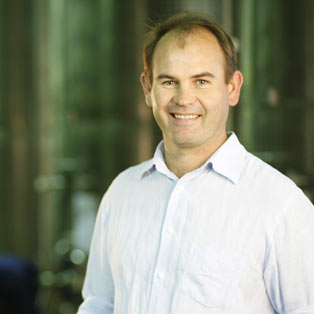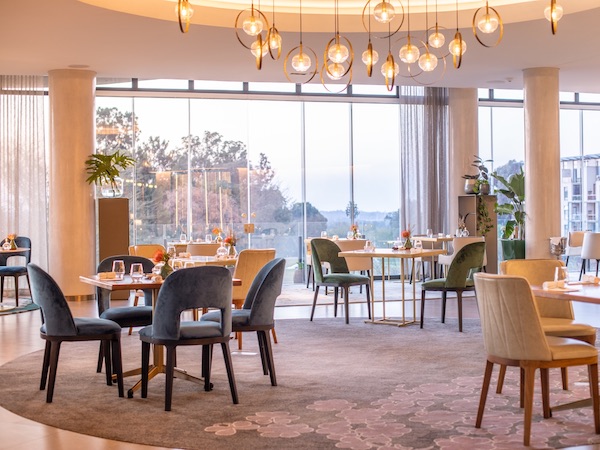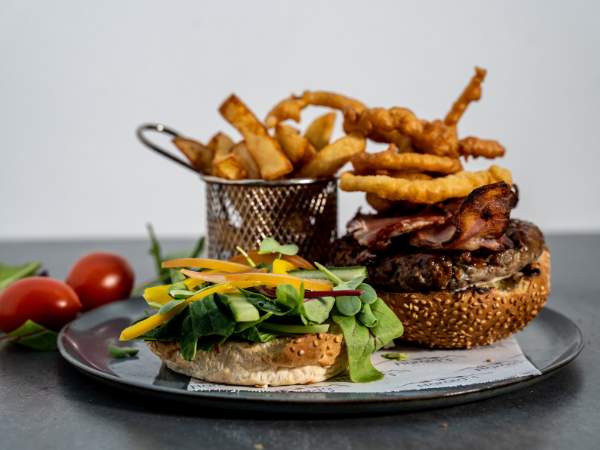News
La Motte: a culture of wine-making excellence
Friday, May 6th, 2011
Edmund Terblanche has a pretty nifty job. As wine-maker for the beautiful La Motte estate, not only does he spend his days in the company of his own award-winning wines, but every year he travels to a French cellar to learn from them, and has been everywhere from Hungary to Canada, California to China, on research trips.
“You get to travel to interesting places, taste good food and wine and meet less serious, artistic and intelligent people all with a love for the earth and its products which is precious to them,” Edmund tells me of his job.
Recently, he also got a whole lot of new toys to play with.
“The whole cellar is new – we spent a lot of money in the cellar almost the same amount as we spent building the new restaurant.” There are new sorting systems and a state of the art cross filtration machine to clean the wine thoroughly. “We still try to keep it as basic as possible – we pick by hand, sort by hand.”
Like many of us, Edmund found his way into this dream job after “a little bit of a detour”.
“It was only at about 30 that I became a full-time winemaker”, he tells me. He worked as a parks manager in Parks and Recreation Department in Johannesburg and did time in the army before returning to his studies in wine-making.
In December last year, Edmund had been at La Motte ten years – and a lot else has changed since he started out in 2000.
“Ten years ago we worked with only the La Motte farm in Franschhoek,” Edmund tells me. Today, they draw their grapes from several different terroirs across the country, and the organic La Motte farm in Walker Bay supplies a third of the grapes – not least their top Shiraz and Sauvignon.
In terms of the wine-making, has anything else changed?
“We’re slowly moving into a lower alcohol direction,” he says, reflecting something which several wineries seem to be trying at the moment. “The wines we harvested a decade ago were harvested very ripe. It was fashionable – we were almost trying to imitate the Australians. But those wines are not aging so well – it probably wasn’t the right thing to do – so we’re actually going back to mid-90s type of wine, with all the knowledge we gained in between. It’s the same kind of picking, but different origins, different blending methods.”
Does he have a wine-making philosophy, I wonder. “Everything is timing,” Edmund says, summing it up in a word. “The end result all depends on what you do when. Most importantly, when you start, when you harvest. You make a selection of grapes, how long you keep it on the skins, when you take it to the barrels, how long you keep it in the barrels; it’s timing and patience. It’s a gut feel to get that right, because it’s never the same from year to year.”
So far, Edmund feels that the timing went well this year. “It’s always difficult to predict quality so early, because the excitement of harvest and fermentation is always exciting, every year. But this year’s analysis was really great – I don’t know why! We had that heat wave in January which had all of us worried, so that hastened up everything so the harvest was earlier. So we thought ‘there go the acids and aromas’, but the analytics were really good, and the colour was solid.”
I pin Edmund down on his favourite wine. What would he chose for his last glass of wine?
“I drink as widely as possible – I’m not zoomed in and fixed on favourites. But I’d probably have a Chave Hermitage from the Rhone in a good season. I actually tasted some yesterday – that was only the second time or third time in my life.”
I jot it down on my wishlist, alongside the trips to Canada, California and China.
Try some of Edmund’s latest releases at the Eat Out wine shop.
For more on La Motte, click here.
By Katharine Jacobs








